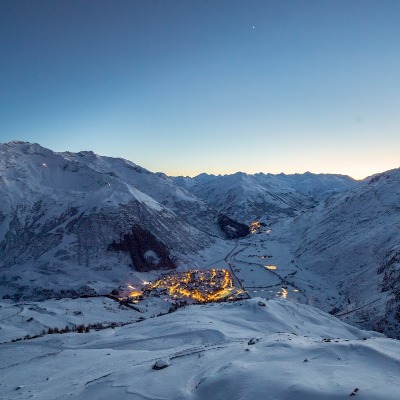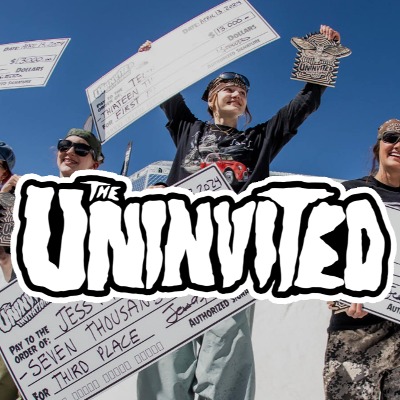Fischer & The Incredible Story Of Lisa Hornblad's Comeback

Lisa Hörnblad (born 6 March 1996) is a Swedish alpine skier, specialising in the speed events of Downhill and Super-G. She represented Sweden at the 2017 World Championships in St Moritz and at the 2018 Olympics in Pyeongchang as well. She talked to sponsor Fischer about injury and recovery.
Hey Lisa,congratulations on your comeback after struggling more than 4.5 years with the worst injuries and setbacks! You've had a really long and intense period of suffering, can you briefly catch our readers up on what happened, how serious your injury was and how difficult your return to skiing was?
"Thank you very much, appreciate it. Yeah so, it all started like 4.5 years ago with a normal ACL rupture and I started struggling a lot. It took time and needed three surgeries and about two years to come back. It was easier, for sure it was tough but to come back for the first time was easy when you compare it to know when I was away for many years. I came back, but fought a lot to get back into racing mode and the speed did not really come back. For a few month I was pretty okay and then I had this huge crash in Cortina and tore the other knee. I destroyed it completely, so ACL, MCL and the worst thing was the cartilage injury. I don't have any cartilage left on the outside of the knee. That was super weird and tough, because when you've been in such an injury before you don't think it will happen that soon again. But it happened and it was like ten times worse than compared to the first time, it was a nightmare."
"I had a big surgery, so everything got fixed and I struggled back but I actually never thought I would be racing again. My doctors were pretty clear that with this cartilage problem it can work and can not work, so we had to see where it takes us. But then it worked out okay. For sure it was super painful, but then I started skiing last August – it was not perfect but it worked. I had another small surgery to check the cartilage and by that surgery I got sepsis. So on my way to the training camp two weeks after that surgery I checked in at the airport and about 30mins before departure I got super bad, like super super super bad. I couldn't move and was passing out. It took some time at the hospital to find out that I have a sepsis, but when they realized it there was a big rush. The risk is quiet big to loose body parts and to even die and so it was all a matter of time in that situation. These two weeks with two surgeries were 100% the worse thing I ever went through, there was so much pain and I was all around just bad. I left the hospital for another six weeks on antibiotics and after that, I was like a ghost. Just like the medicine killed me from the inside, I lost all my muscles, all my energy."
"Then the recovery started and it was pretty mentally tough, because it was not like to just come back from a knee injury since also this sepsis thing happened and I was fighting so much and I always had the feeling to climb up and get pulled down again. I was pretty tired of fighting during that time, I was super low mentally and physically. It took time the whole last winter to recover from that and I tried to ski a bit in the spring and that didn't work at all. We tried some injections to get the cartilage better but at that point I thought "Okay, that was it" because my knee was hurting with every step, didn't matter if I was walking on the street or training. But I think it just needed time and it got better with every injection, I worked hard and back skiing in late August felt quite good. Since then I've been back racing and it's really a super weird journey. It happened a lot and I'm super proud of me being back skiing and how I fought for it. Nobody knows how bad it really was a lot of times, so I'm very happy and proud standing up in the start gate right now. I'm happy but I know, it's still a long way back."
What was the hardest part of the whole journey and did you think about ending your career for good?
"The hardest part of this whole journey was for sure that it just happened so much during that time. I was fighting so much to climb pack, get better and got pulled back down to the rock bottom. Then climbing again and back to the bottom, so it happened all in all about 4 times. Of course the knee injury and the sepsis were an unlucky thing, but it was pretty tough to accept it. I just thought "I've been through enough now, just let me breathe a little bit". But there hasn't been one single time for breathing these years, it just has been about fighting every day and that was definitely the toughest part."
Can you take anything good from the injury?
"Yeah, for sure. You grow as a person, especially in the beginning you learn a lot. You learn how to go through things and learn how to get different perspectives. Everything you felt annoyed about before got so small afterwards, so for sure you get more chilled about some things and take them easier as you see the bigger picture. For example to be back now but not where I wanna be and I would be Lisa from four years ago, I would be crying every single day. But now I know where I've been through and that helps me to handle this situation in a better way. I'm also super different as a person, these four years changed me a lot. I'm not gonna say in a bad way, but for sure it killed me a little but. It changed me in many good ways, but also in some bad ways."
What advice would you give to other young athletes who are set back by a serious injury?
"An advice I would give is for sure to try to be where you are. There were a lot of days I was only focusing hour by hour, day by day, because it was very difficult to think about the big picture and for example when you will be back on skis. It's a very long time, so in this situation I tried to work with short term goals like "This week I'll try to walk" or "Or this week I'll do my first squat". To watch further would have made it too hard, I think. And I tried to enjoy other things in live. It was not that easy the first time, but I tried to do different things and to step out of the skiing bubble. It made it much easier because otherwise it would have been just negative, thinking about the rehab 24/7 for months. To step out of the bubble and to spend time with friends or whatever made it way more bearable"
What are your plans for your comeback on the World Cup and the coming months and years?
"My goal for the World Cup and the races in the future is for sure to be back where I was like four years ago, aiming for a Top 10 result. But it's hard to say when, I'll try to be kind to myself and to do whatever I can every day and then we'll see, how much time I'll need. It's hard to plan when you've been this injured, so I just try to do my best to be fast again."
Thank you very much for the interview and the greatest respect for your performance, Lisa! We wish you an injury-free season and fast races!













